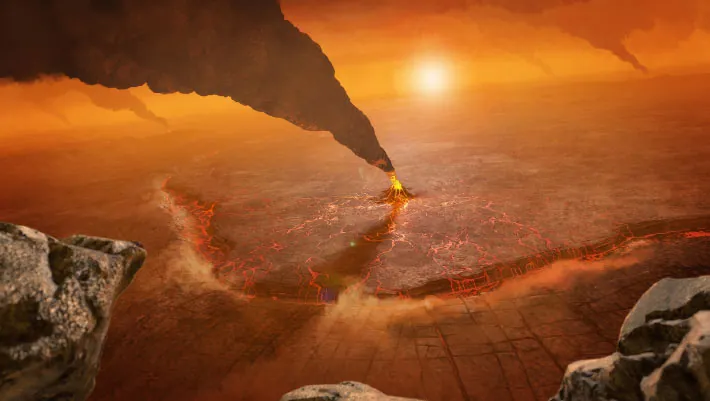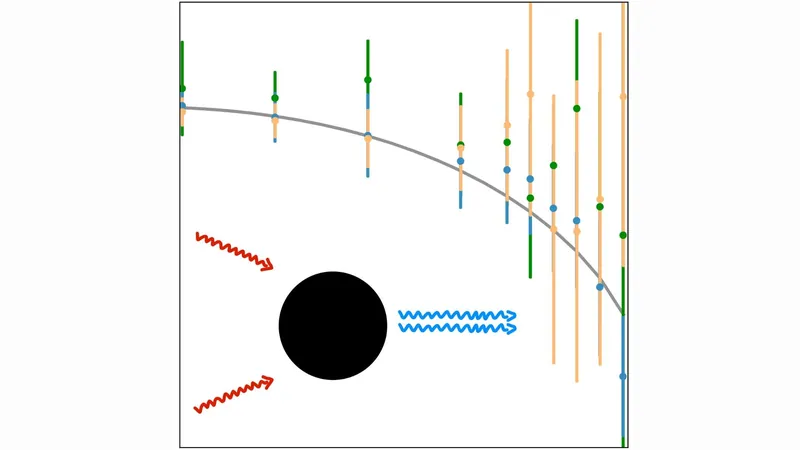
Unlocking Venus: New Insights into Its Mysterious Crust
2025-05-12
Author: Jia
Unveiling the Secrets of Venus' Crust
Scientists have long been fascinated by Venus, Earth's scorching twin, and a new modeling study sheds light on its enigmatic crust. While it was believed that Venus's outer crust would continually thicken without the tectonic forces seen on Earth, a collaboration between experts from The Open University, NASA, and the Lunar and Planetary Institute has revealed a surprising metamorphism process that reshapes this crust.
The Unique Nature of Venusian Geology
Unlike Earth, where massive tectonic plates drift and collide, creating mountains and deep trenches, Venus boasts a single, unyielding crust. Dr. Justin Filiberto, deputy chief at NASA's Astromaterials Research and Exploration Science Division, highlights the stark contrast: Venus lacks evidence of subduction, the process where one plate sinks beneath another.
Surprisingly Thin Crust
Using advanced modeling techniques, researchers revealed that Venus's crust averages a mere 40 kilometers (25 miles) thick and can reach up to 65 kilometers (40 miles). Dr. Filiberto expresses surprise at this finding, stating, "That is surprisingly thin, given conditions on the planet." The models suggest that as the crust thickens, it becomes increasingly dense, leading to either its breakage into the mantle or melting into magma.
Metamorphism: A Hidden Force
Yet, despite the absence of mobile tectonic plates, the crust of Venus is not static. The study suggests that metamorphism—a transformation driven by heat and pressure—still plays a crucial role in volcanic activity on the planet. This groundbreaking model not only challenges previous assumptions but also introduces a new way for material to cycle back into Venus's interior, potentially stimulating volcanic eruptions.
Implications for Understanding Venus
Filiberto emphasizes the significance of these findings for comprehending Venusian geological processes and its atmospheric dynamics. As materials recycle into Venus’s depths, it could lead to more volcanic eruptions, making it vital for scientists to gather direct data about the planet's crust.
The Quest for Knowledge Continues
The team acknowledges that while research points to substantial volcanic activity on Venus, concrete evidence is still needed to paint a clearer picture. The findings were published in Nature Communications, paving the way for future explorations that might truly decode the geological narrative of our enigmatic neighboring planet.





 Brasil (PT)
Brasil (PT)
 Canada (EN)
Canada (EN)
 Chile (ES)
Chile (ES)
 Česko (CS)
Česko (CS)
 대한민국 (KO)
대한민국 (KO)
 España (ES)
España (ES)
 France (FR)
France (FR)
 Hong Kong (EN)
Hong Kong (EN)
 Italia (IT)
Italia (IT)
 日本 (JA)
日本 (JA)
 Magyarország (HU)
Magyarország (HU)
 Norge (NO)
Norge (NO)
 Polska (PL)
Polska (PL)
 Schweiz (DE)
Schweiz (DE)
 Singapore (EN)
Singapore (EN)
 Sverige (SV)
Sverige (SV)
 Suomi (FI)
Suomi (FI)
 Türkiye (TR)
Türkiye (TR)
 الإمارات العربية المتحدة (AR)
الإمارات العربية المتحدة (AR)